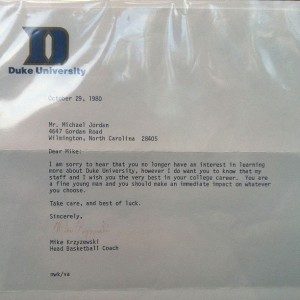You know what car dealers know that they’ll never tell you? They know that if they can get you to test drive a car, there’s a great chance they can talk you into buying a car. That’s why you see all of these test drive special offers! Come on in for a test drive and you’ll automatically get 2 free tickets to a Piston’s game. The best ones are the ones when it’s for a charity or non-profit school organization – “we’ll donate $20 per test drive this Saturday to the little league!” They know that we are stupid and we are addicted to new car smell – get enough folks to come in and test drive, and they’ll be moving some cars that day!
Hiring really isn’t to awful different.
In my business, contract staffing, I know that if I can get you to hire some on contract, engineers or IT professionals – you’re going to eventually want to hire them. You’re basically test driving talent! The one rejection I get the most from corporate HR/Talent Pros is that we don’t want “contract” we want to hire direct. So, I ask the most obvious question – why? And I’ll get a range of answers that mainly stay around the theme of: “we want someone ‘permanently’ to come and work here”.
Here’s what I know about hiring.
1. No matter what hiring/screening/interviewing process that you have – you’re going to make some really bad hiring decisions.
2. Once you hire someone ‘direct’ – it’s highly unlikely you will be quick to terminate that person. (2 reasons for this: A. As a HR Pro you don’t want to admit that your process failed; B.Your hiring managers are bad at performance management and it takes them forever to get to a point to fire.)
3. You’ll fire a contractor without a 2nd thought. (HR Pros are great – because the exact things they would never fire a ‘direct’ employee over – they’ll ‘can’ a contractor over in a heartbeat! “Yeah, Tim, Johnny keeps wearing Capri pants, he doesn’t fit in here, we want to end the contract.”)
I always tease my clients that contract staffing a little like ‘Crack’ – once you start, you don’t want to stop. Here’s why you need to try crack contract staffing:
1. You hire faster. (You still screen, but you don’t have to get all HR crazy with it! Hiring managers love this because you get people in fast, determine if they are a good organizational fit and Bam – it works. I can’t tell you how many times on the corporate side we took months to make the ‘right’ decision, only to have the person come in and find out they really weren’t that great of a personality fit with the hiring manager. Such a complete waste of time and resources.)
2. Ultimately, when you decide to hire direct – you’re hiring a completely known talent. There are no surprises. You’ve test driven your candidate for an extended period!
3. You might find out you don’t need someone on direct. I can’t tell you how many times a year a client comes to us saying they need someone, ultimately for a direct position, but 6-9 months into it they’ll lose a project, or have another resource internally come available. 99% of HR/Talent Pros have no idea what percentage of their workforce should be contingent – with many ‘truly’ believing that percentage should be zero! If the recession has taught us anything, it’s we need to have at least a little flexibility to our workforce. Our European HR counterparts get this much more than we do.
Want to know more? Want us to find you some contract Tech Pros? Want me to come take you to lunch to discuss? (I’ll buy) Want to tell me I’m an idiot? Contact me directly at: sackett.tim@hru-tech.com; 517-908-3156 or @TimSackett on the Twitters!

